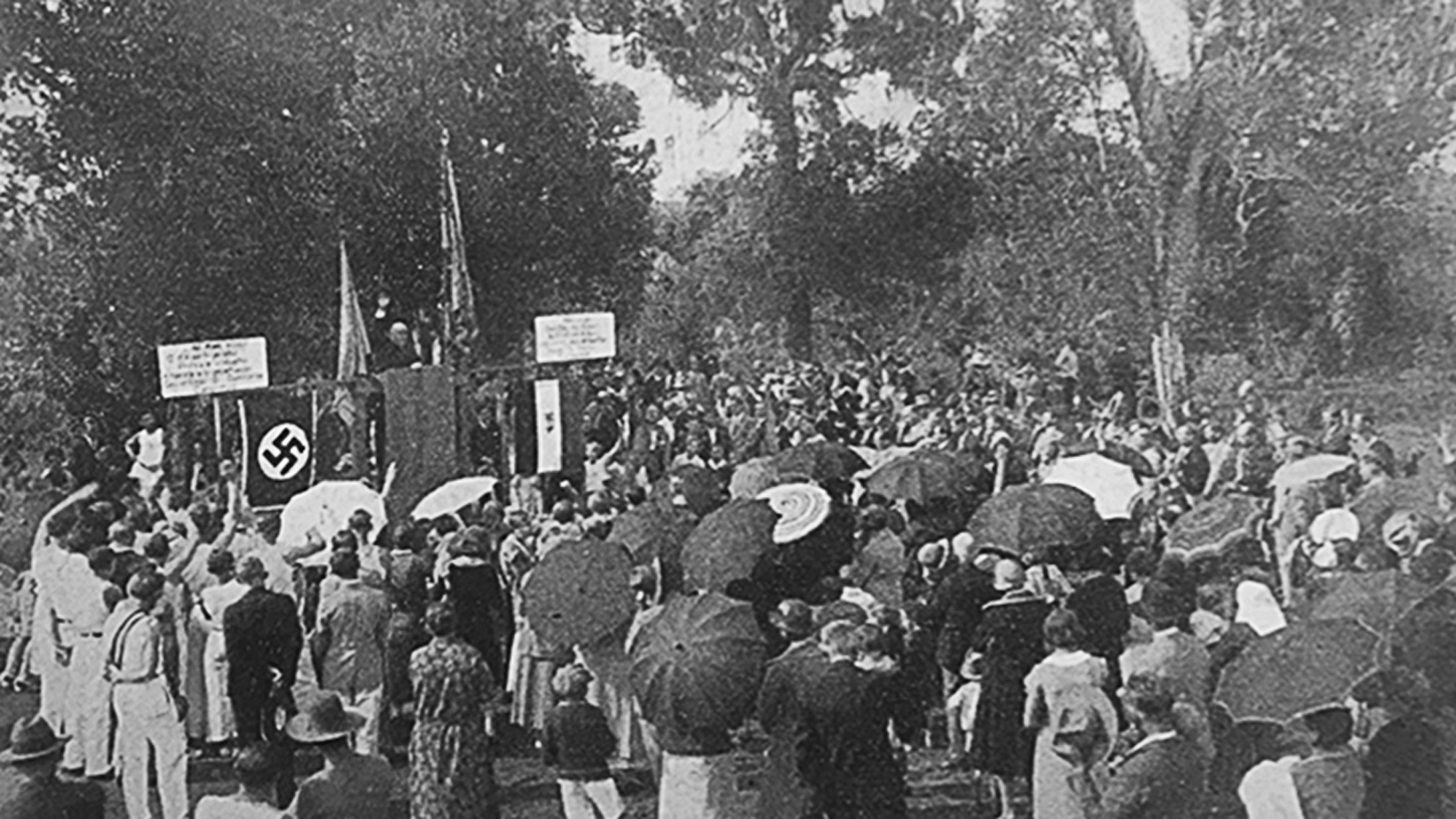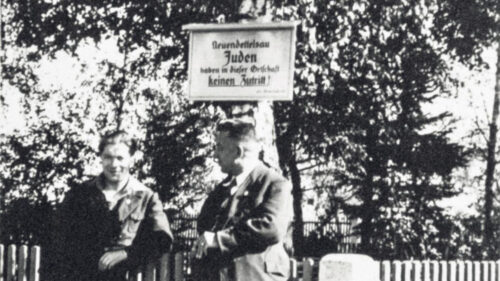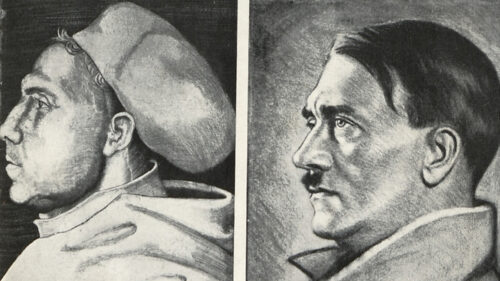Pastor Georg Weger and his family are completely devoted to Nazi ideology. Weger’s ‘church services’ in Canoinhas, southern Brazil, are meticulously conducted according to the pattern of the German Reich: German Reich’s flag, swastika flag and Hitler salute.1
A scorching sun sends its rays onto the dusty ground of the forest glade not far from the colonial parsonage of the Weger family. The congregation has arrived by now, some of the women shield off the blazing heat with parasols. It is May 1st of 1934, the great national holiday of the German People – National Labor Day. Here in far-away southern Brazil, people wish to commemorate their beloved homeland and their Fuehrer. Left of the pulpit waves a large swastika banner, the right side of the pulpit is flanked by the black, white, and red flag of the German Reich. Pastor Weger steps behind the wooden pulpit. Proudly he opens the service with his right arm raised: “Heil Hitler!”, the forest glade resounds with the voices of the church members, young and old, euphorically responding to the Hitler salute…
Excerpt from the manuscript of a historical novel “Oberhalb der Zeit – Eine Abhandlung des Deutschen Reiches in Brasilien.”
The Lutheran Church of Southern Brazil radically and openly propagates the National Socialist ideology right from Hitler’s takeover in 1933 until the founding of the “New State” (Estado Novo) by Getúlio Vargas in 1937.
The entire way of thinking, feeling, and acting was virtually infested by the dream of a “Great Germany” and by the ideology of National Socialism that supported or carried it. During these years, the work of the church was thus increasingly characterized by fascist, racist, and totalitarian features, both in form and content.
Backhouse, Martin/Zeller, Hans (Ed.): Aufbruch in Grenzen. Von der Migrationskirche zur lutherischen Kirche in Brasilien. 2016, p. 105
An urgent demand is made at a synodal gathering in 1934:
[…] every fellow German who still cares about the preservation and salvation of their national character here in Brazil, everyone who still carries a spark of love for the ancestral national character, [must] profess this new world view of National Socialism and, in its spirit, become a fighter for the revival of the soul of our national character. The church represents a “German faith”, because “Lutheran Christianity” is “true German Christianity … in which the German soul has united with the spirit of the gospel. By proclaiming the gospel in the spirit of Luther, the church thus does its best service to preserve the national character and its soul. This is also the task of our German Protestant Church in Brazil, which is founded solely on its mission to the “German national character”.[…]
Dreher, Martin Norberto: Kirche und Deutschtum in der Entwicklung der evangelischen Kirche Lutherischen Bekenntnisses in Brasilien. 1978, p. 129
1 Dreher, Martin Norberto: Kirche und Deutschtum in der Entwicklung der evangelischen Kirche Lutherischen Bekenntnisses in Brasilien, 1978, p. 188 footnote
Picture credits:
Cover Picture: Outdoor service on National Labor Day on May 1, 1934 in Canoinhas. In: Freimund, photo insert on the occasion of the annual celebration of the Martin Luther Association in Bavaria, 1934. Title: “So pflegt das Brasilianische Hilfswerk des Martin Lutherbundes lutherisches Kirchentum und deutsches Volkstum durch Sendboten vor allem des Neuendettelsauer Missions- und Diasporaseminars [Pfarrer Georg Weger].” [Thus the Brazilian Relief Organization of the Martin Luther Association cultivates Lutheranism and German national character especially through missionaries of the seminary for mission and diaspora of Neuendettelsau [pastor Georg Weger] ].


